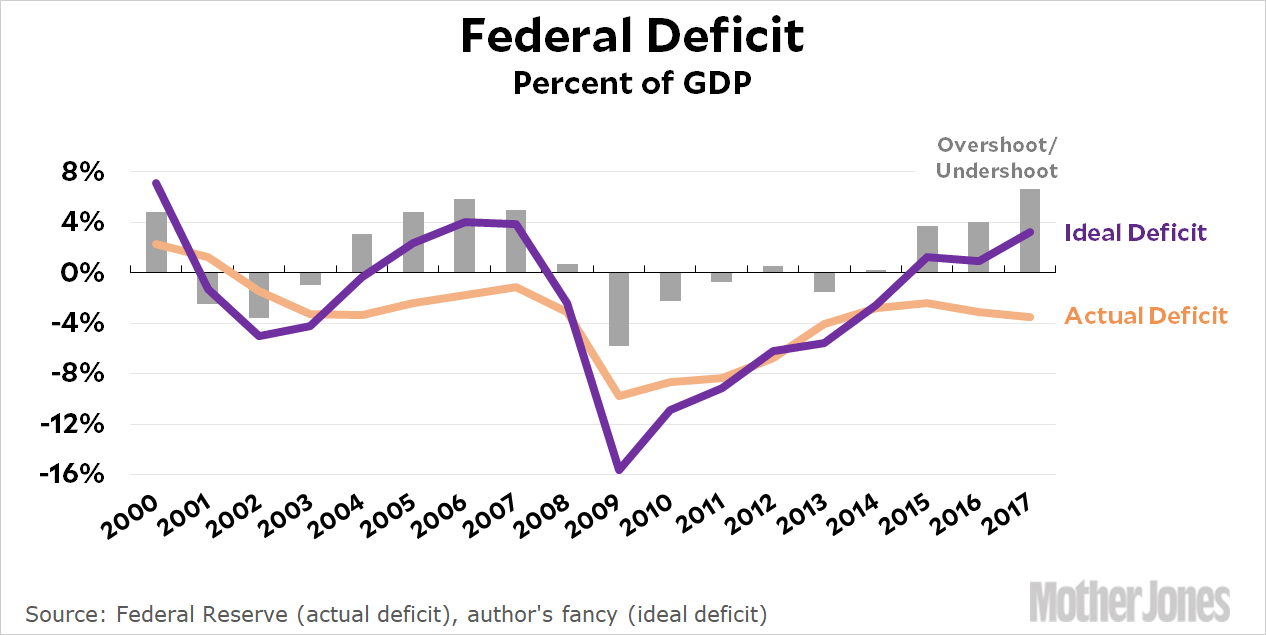Ross Douthat decided to devote his entire year-end “mistakes” column to a single thing this year:
In the spirit of the longer view, I want to use this confessional column to reach back to the early Obama years, and the arguments I made then that assumed the urgency of deficit reduction, the pressing need for honest liberals to champion major tax increases and for honest conservatives to go all-in for major entitlement reform.
….But now I think this reasonable view was wrong. Not completely, in the sense that many of the deficit-reducing policies I supported — means-testing entitlement programs, eliminating tax breaks for the wealthy and upper middle class — I still support, because I think the money involved is presently misspent. But I was wrong in the priority that I gave the deficit relative to other issues, wrong to discern a looming “fiscal precipice,” wrong in some of the criticism I leveled at both George W. Bush and Barack Obama for failing to care enough about balancing the nation’s books.
Paul Krugman approves, but I’m going to be more grinchy about this. The lesson to learn from the past decade isn’t that deficits are OK. The lesson is that broad fiscal policy is a tool, like anything else, and ideally it should be used to keep the economy on an even keel by running deficits during recessions and surpluses during good times. I have created my own “Kevin Rule” for the ideal deficit, which I am not going to share with you because it’s not to be taken seriously. This is for illustrative purposes only. But I think it provides at least the right sense of how we’ve been doing:

Roughly speaking, the gray bars show how far wrong we’ve been. During the Great Recession, we needed more deficits. We undershot. Starting around 2011 we did pretty well for a few years. But then we started overshooting on deficits. Right now we should probably be running surpluses of 2-3 percent of GDP.
Obviously you can argue about how high federal deficits and surpluses should be. In fact, that’s the whole point of this post: to get people talking about just what kind of targets we should have and what they should be based on. Inflation rates? Potential GDP? Bond markets? Or do you think the whole countercyclical theory of deficits is as antiquated as the gold standard, and monetary policy is all that matters? Douthat nods toward this in his column, but it deserves much more explicit discussion.
For conservatives, the hardest part of all this is understanding what this means in real life: the only practical way of controlling deficits is via taxes. Entitlement reform won’t do it because that’s permanent and long-term. Nor can permanent discretionary spending cuts do the job. You’ll have to argue for those things on their own terms. After all, the whole point of this exercise is that sometimes we need more spending and sometimes we need less. It would probably be a good idea to increase the size of spending stabilizers (i.e., things like unemployment compensation, which automatically go up during a recession), but there’s a limit to how much you can do on that score.
So that leaves taxes. We can still argue over the best long-term tax structure, but theological arguments about tax rates would have to end. Everyone would have to agree on temporary tax surcharges during good times as well as temporay tax rebates during recessions. This is really the only practical way to keep deficits in the ballpark of where we want them to be.
I know perfectly well that this change of heart will not happen anytime in the near future. But if you can’t dream on New Year’s Eve, when can you?














